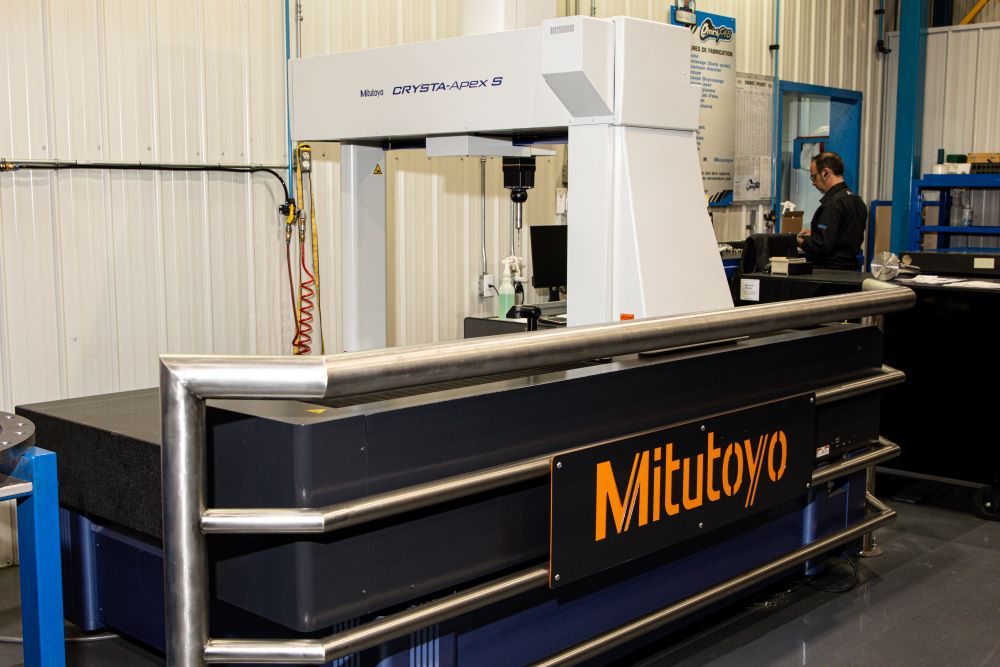Since the Industrial Revolution, production lines have continuously improved, incorporating more and more technologies to make them more efficient and safer.
Today, the automation of industrial processes is a path many companies take to gain an edge over their competitors.
But what exactly does industrial automation involve, and what are its benefits? These are the questions our mechanical engineers answer in the following paragraphs.
Definition of Industrial Automation
Industrial automation can be defined as the use of technologies and automated systems to carry out tasks, processes, and operations in an industrial production environment (e.g., handling, assembly, loading, unloading).
It involves the integration of machines, sensors, software, and programmable controls to replace or enhance activities traditionally performed by human workers.
The Aim of Industrial Automation
Industrial automation seeks to optimize and enhance manufacturing processes by deploying intelligent machines and systems to handle tasks with minimal human intervention.
The Benefits of Industrial Automation
It’s important to note that the benefits of industrial automation can vary depending on the type of industry and the specific processes implemented.
That being said, industrial automation almost always offers the entire set of advantages listed below.
1 – Boosting Production Line Efficiency
Industrial automation has the potential to boost productivity and efficiency in manufacturing processes.
Automated machines can perform repetitive tasks more rapidly and with consistent precision, resulting in increased production output.
Additionally, many types of automated machines can operate without an operator, enabling continuous production 24 hours a day, 7 days a week, even during holidays.
2 – Cutting Production Costs
Despite an initial investment that can be significant, automation usually leads to savings for an industrial company, most notably in terms of raw material costs, labor, and energy.
Automated machines are particularly effective at optimizing resource use and minimizing waste. Ultimately, it is possible to produce more with less.
Automate your operations with the help of our experts
3 – Reducing Uncertainty Due to Labor Shortages
In the current economic climate, recruiting skilled and reliable workers is a challenge for many companies, including those in the industrial sector. The scarcity of labor has become a significant issue for numerous organizations that struggle to maintain their production pace due to a lack of employees.
Given this situation, the automation of industrial processes is a powerful solution to reduce dependence on workers and ease the management of human resources.
4 – Improving Worker Safety
Industrial automation contributes to improving ergonomics and safety in the workplace. Dangerous or repetitive tasks can be assigned to robots and machines, thus reducing the risk of accidents or occupational injuries for workers.
This also allows for the implementation of stricter industrial safety measures, such as sensors and safety systems integrated into automated machines.
5 – Enhancing Production Flexibility
In general, automated machines offer greater flexibility in production. For example, they can be programmed to perform different tasks and adapt to various products and configurations.
This means companies can respond swiftly to changes in market demand and produce a wider variety of products without having to completely reconfigure their production line.
6 – Elevating Overall Product Quality
Industrial automation ensures a consistent and high level of product quality, as automated machines can precisely measure and control production parameters, reducing variations and defects.
This is reflected in higher-quality finished products and greater customer satisfaction.
Omnifab: Your Best Partner in Industrial Automation
In conclusion, our specialists emphasize the key benefits of industrial automation as follows:
- Boosting production efficiency
- Cutting production costs
- Reducing uncertainty due to labor shortages
- Improving worker safety
- Enhancing production flexibility
- Elevating overall product quality
To develop an automation plan that allows you to take advantage of these benefits, contact our team now.
Our industrial automation services are available to virtually all industrial companies.





